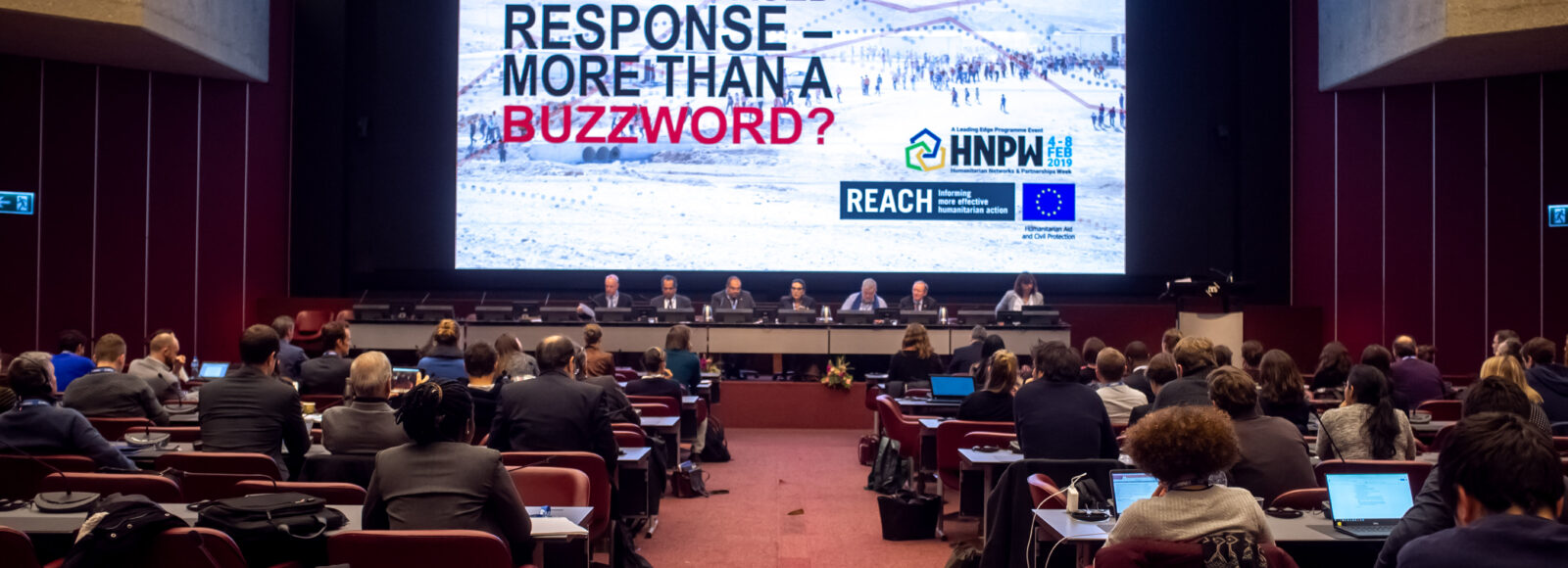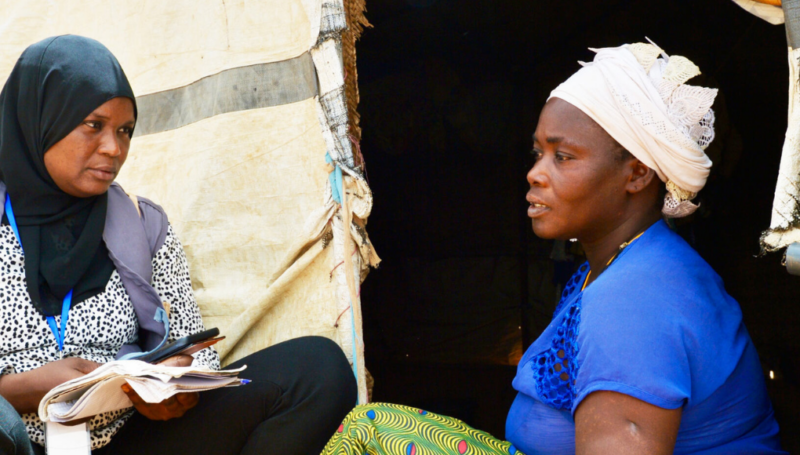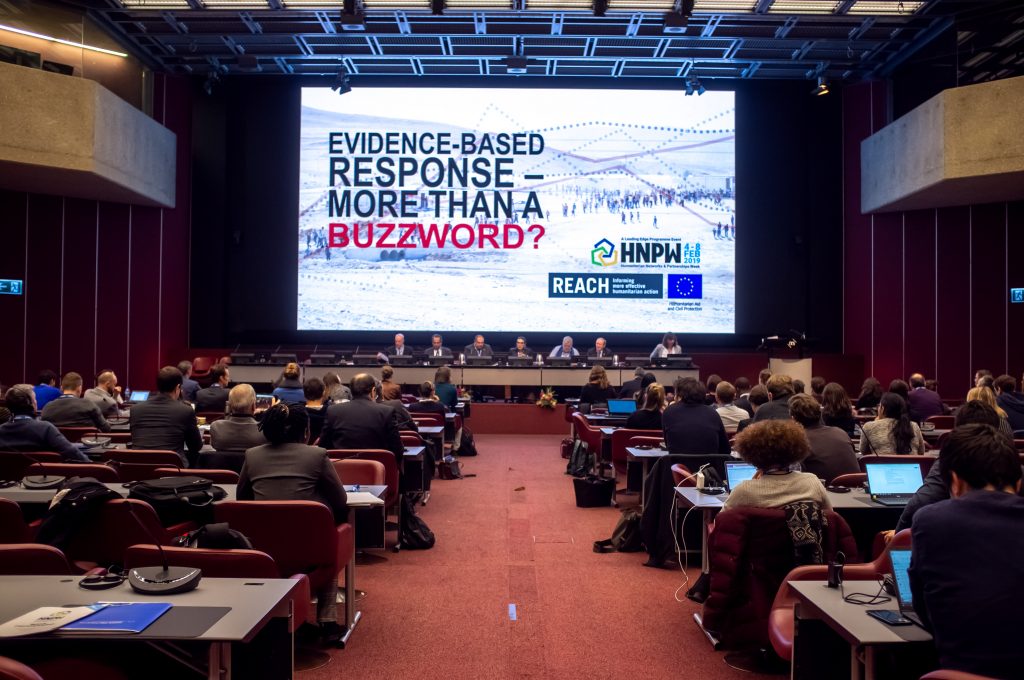
“Evidence-based response – More than a buzzword?” panel discussion brought five high-level decision-makers to discuss the implementation of the Grand Bargain commitment for joint and impartian needs assessments. ©UNOCHA / Office for the Coordination of Humanitarian Affairs
Data. Evidence. Facts. There is little controversy on the significance of information when it comes to decision-making. No less so in strategic decisions made in humanitarian contexts. Yet, the line is fine between information directing decisions and available information justifying decisions already made. How to best support humanitarian response that places data and information to the centre of aid, was a question REACH and DG ECHO set to answer in their joint panel at the Humanitarian Partnership and Networks Week.
It has been three years since humanitarian agencies and government donors met in Istanbul and agreed on a number of commitments in the framework of the “Grand Bargain”. Faced with a growing gap between spiralling humanitarian needs and resources available to meet them, the signatories of the commitments agreed to take action to increase the efficiency of the humanitarian ecosystem. Among the commitments was one on joint and impartial needs assessments – the requirement for “a single, comprehensive, cross-sectoral, methodologically sound and impartial overall assessment” in order to define the needs for each crisis and “inform strategic decisions on how to respond and fund” the response to the crisis.
During the past years, the humanitarian field has seen strong steps taken in mainstreaming assessments across continents and crisis. In order to discuss the progress of the implementation of the commitment, DG ECHO and REACH brought five high-level decision-makers together to explore the role, potential, and risks of assessments and ensuing humanitarian data.
“Human beings are not constructed in clusters and systems,” Ms Androulla Kaminara, Director for Africa, Asia, Latin America, Caribbean and the Pacific at DG ECHO, noted in her opening remarks. By saying this, Ms Kaminara pointed out the endemic blind-spots of humanitarian data collection; assessments find what assessments are looking for. Research defined by a sector-led system is not always best fit to paint the big picture, causalities or underlying vulnerabilities of the given context.
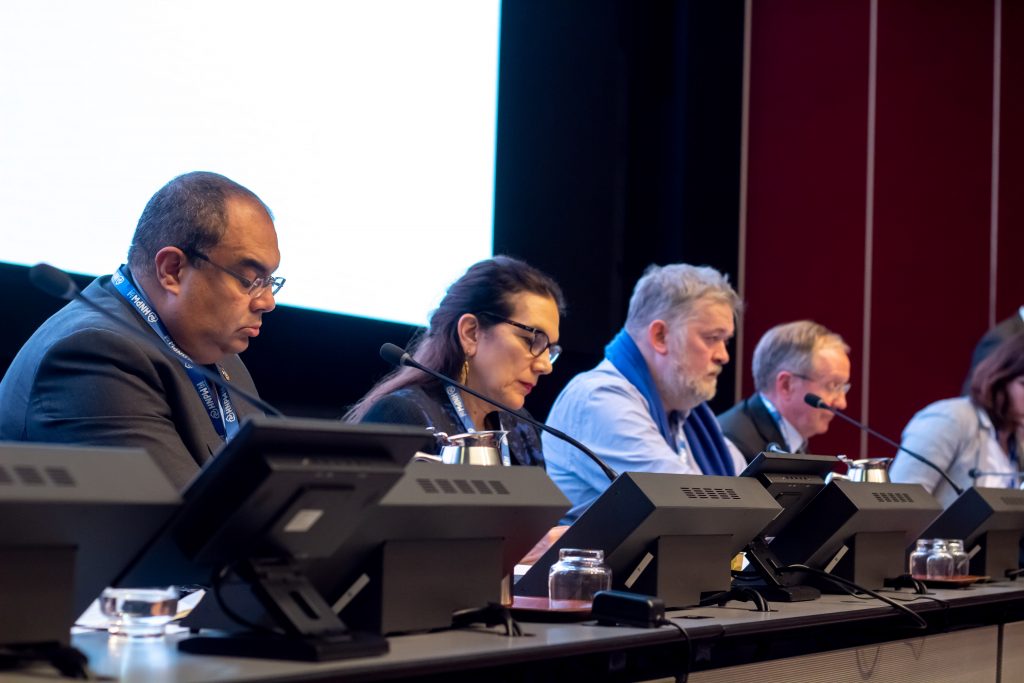
“Evidence-based response – More than a buzzword?” panel discussion brought five high-level decision-makers to discuss the implementation of the Grand Bargain commitment for joint and impartian needs assessments. Ms Androulla Kaminara, Director for Africa, Asia, Latin America, Caribbean and the Pacific at DG ECHO underscored the need for secure data protection measures developed alongside the mainstreaming of multi-sector needs assessments.
©UNOCHA / Office for the Coordination of Humanitarian Affairs
Beyond sector-specific approaches
The panel discussion was framed by the recent results of eight multi-sector needs assessments or MSNAs conducted by REACH and partners such as DG ECHO, UNHCR, WFP and OFDA in 2018. The extensive MSNA research projects were conducted in contexts ranging from Libya to Uganda and provided comparable data across all relevant sectors or clusters, all crisis-affected areas in the country as well as all crisis-affected population groups. The aim of the assessments was to provide operational actors, policy makers, and funders a tool to zoom in to a sector and zoom out to look at the larger trends of the context.
The MSNAs resulted in more than 300 references in Humanitarian Needs Overviews and Humanitarian and Refugee Response Plans for 2019. The data gathered by REACH thus succeeded in providing evidence for response prioritisation and humanitarian decision-making in some of the direst contemporary crises. Furthermore, the MSNAs provided an entry point for the streamlining of humanitarian data collection and analysis making way for a more efficient and coordinated response. The MSNAs provide aid actors with the opportunity to meet on the same page.
Data in itself has little value – value is added when data becomes information
“When we come up with the evidence, the question is, how do we hold everyone accountable? How do we have real time feedback that is truly taken into account in our programs? That is key to avoid overlaps and assessment fatigue,” Mr Andrew Harper, Director of the Division for Programme Support and Management at UNHCR, noted. Data in itself is not a solution. The true strength of data is best seen when information is recognised by all response actors, leading to efficient coordination.
A final point underscored by the panellists was the shadow-sides of data. The more information is made available, the greater the risk of the abuse of data grows. This is an exceedingly grave challenge in humanitarian contexts when data is connected to already exposed and vulnerable communities. A priority echoed across the panel was the notion that as technologies enabling data collections are developed, similar emphasis needs to be put on innovations protecting affected population and aid beneficiaries, in this case, the sources of information.
“Highest needs and the severest lack of data often go hand in hand,” Frédéric Roussel, the founder of ACTED, underscored. This is a gap that needs to be filled, but not by all means. Data is only worth the time invested in collecting it, when it leads to the improvement of the reality of the respondents – meaning the victims of disasters, conflict and crises.
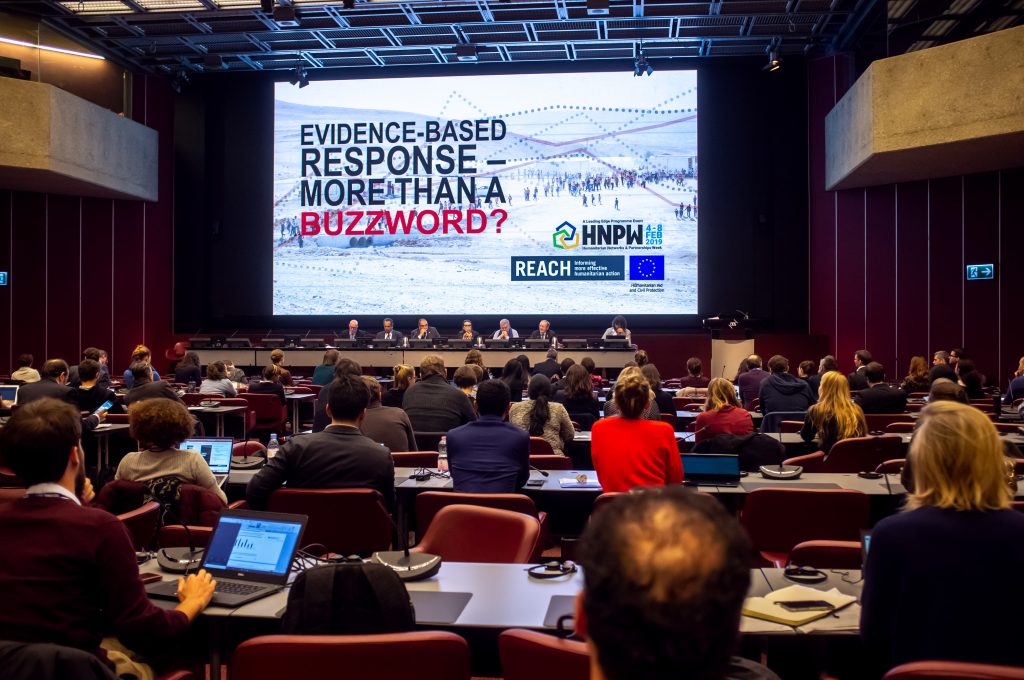
Questions from the audience underscored the need to take note of language and the barriers it imposes on information and the collection of quality data, the urgency to monitor humanitarian needs on a continuous basis, and the need to moving beyond silos both in relation to information as well as responce.
©UNOCHA / Office for the Coordination of Humanitarian Affairs.
The panel discussion Evidence-based response – more than a buzzword? Was organised as part of the Humanitarian Networks and Partnerships Week 2019 in Geneva by REACH and the European Commission’s Directorate-General for European Civil Protection and Humanitarian Aid Operations, DG ECHO.
The panel consisted of:
- Androulla Kaminara, Director, Africa, Asia, Latin America, Caribbean and Pacific at DG ECHO
- Mahmoud Mohieldin, Senior Vice President for the 2030 Development Agenda, United Nations Relations, and Partnerships, World Bank
- Ramesh Rajasingham, Director, Coordination Division, OCHA
- Frédéric Roussel, Founder and Director of Development of ACTED
- Andrew Harper, Director of the Division for Programme Support and Management and UNHCR
The discussion was facilitated by Claus Sorensen, former Director General of DG ECHO, and opened by Luca Pupulin, Executive Director of IMPACT Initiatives and REACH.





